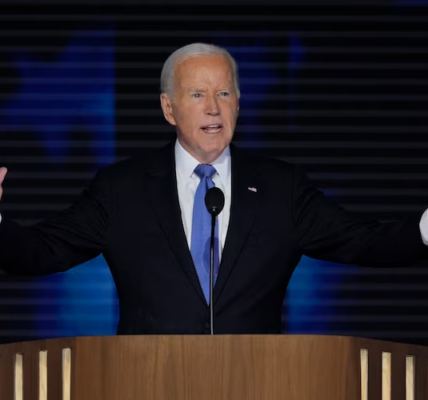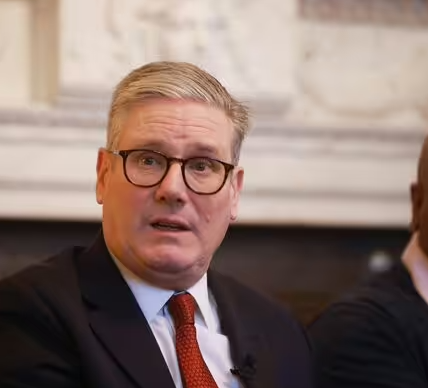With MPs openly criticising the Prime Minister at Labour’s conference, growing backbench dissent may soon turn into guerrilla warfare

Three months into their return to office after 14 years, you might expect the Labour Party to be as synchronised as a philharmonic orchestra.
First-time MPs know that any squeak of dissent might damage their careers, while seasoned campaigners are aware that discipline is what made the party electable in the first place.
Yet it wasn’t difficult to find MPs openly criticising Sir Keir Starmer on policy matters at the Labour Party Conference this week.
There is growing opposition to several touchstone positions the party has taken, and already there are indications that he will face guerilla warfare from backbench groupings that are digging in for the long haul.
Starmer has already suspended seven MPs for voting against the Government over its insistence on retaining the two-child benefit cap. The talk at the conference in Liverpool was whether he will have to carry on suspending more and more rebel MPs like a referee who has lost control of a match.
The decision to means test the winter fuel payment for pensioners is already a key battleground that might pit Starmer against ever greater numbers of his legion of MPs.
Party members voted in favour of reversing the cut in a motion that was carried on the final day of the Labour conference. The vote is not binding, but it highlighted the fact that Starmer has no mandate, either from the electorate (as the policy was not in the Labour manifesto) or his own party.
Rachael Maskell, the MP for York Central since 2015, is a physiotherapist with 20 years’ experience of running NHS services, who is among the leading critics of the winter fuel payment cut.
She says: “Good governance depends on digging deep into evidence. We know heating is part of social prescribing. Every one degree temperature drop in people’s homes will result in more people turning up at GPs.
“Cold homes lead to higher mortality rates. I have told the chancellor this but got no response. It’s 2024, I literally do not want people turning up at my surgery to tell them they simply have to wrap themselves up more to keep warm”.

Maskell, an evangelical Christian, is neither a natural rabble-rouser nor an ideologue. She believes that Starmer should listen to those with experience at the sharp end of healthcare, like herself, rather than ignoring their advice.
She says: “I want better for Starmer. I am really not trying to be disruptive. I am just trying to tell the truth.”
She was among 52 Labour MPs who did not vote when Parliament approved the winter fuel payment cut, with one, left-winger Jon Trickett, voting against it.
Parliamentary approval for the benefit cut is unlikely to end the saga, especially if hospitals see an uptick in pensioners being admitted with hypothermia this winter.
Critics of the policy have suggested that it might end up costing rather than saving money if there is a bad winter this year and hospitals fill up with pensioners unable to afford heating.
There is also a growing rebellion over Labour’s controversial stance on transgender issues. Anneliese Dodds, the women and equalities minister, is determined to change the law to make it easier to change gender and to bring in a trans-inclusive ban on conversion therapy. There are widespread fears that a new law could criminalise parents, doctors and teachers who question whether a child really does want to transition.
Tonia Antoniazzi, the MP for Gower, and Rosie Duffield, the MP for Canterbury, are the torch bearers for gender critical Labour MPs. Antoniazzi chaired an event at the Labour conference hosted by Labour Women’s Declaration, which supports the right of women to have single-sex spaces that are not shared with biological males who identify as women.
She told the event there were “at least 30” Labour MPs, including some from the new intake, who publicly or privately oppose the Government line on trans issues, and that “there’s a lot of people that have been like swans, working underneath the radar”.


Sonia Sodha, from the left-wing Observer newspaper, told the same event she believed that more than half of female Labour MPs were “quietly gender critical”, suggesting a major rebellion in the offing.
Duffield has said in the past that “only women have a cervix”, which Starmer said was “not right”.
Then there is the Left-wing faction of Labour MPs who have had the whip temporarily suspended after voting to lift the two child benefit cap.
Led by John McDonnell, the former shadow chancellor, the seven rebels will have their suspensions reviewed in January, when Starmer must decide whether to allow them back into the fold. Apsana Begum, Richard Burgon, Ian Byrne, Rebecca Long-Bailey, Imran Hussain, Zarah Sultana and McDonnell are unlikely to promise never to rebel again.
But another 42 Labour MPs did not vote or abstained, including Duffield, who said illness prevented her voting but that she would have joined the rebels, and Nadia Whittome, the Nottingham East MP, who said that Starmer simply does not engage with his backbenchers. Perhaps if he showed them a little love they would be more prepared to behave.

The canary in the cage, as far as Starmer’s strategy on further suspensions goes, is likely to be Diane Abbott, who is permanently on the naughty step after being banned, then unbanned, from standing for Labour in the general election. She seems to be daring Starmer to suspend her with a barrage of critical comments, accusing him of being “in the pocket of millionaires” this week and using her autobiography to suggest he plays favourites when it comes to clamping down on anti-Semitism.
Abbott, the Mother of the House as the longest-serving female MP, has huge support among colleagues on the Left of the party. So far Starmer has resisted the temptation to suspend her, but if he does, he could have a major rebellion on his hands.
With such a huge majority, he may think it does not matter, but party discipline is never likely to be higher than it is now, and if he intends to carry on bulldozing policies through Parliament that his party does not support, he will need all the friends he can get.


